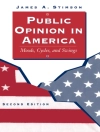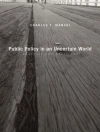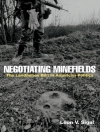The Prince is widely thought to be one of the first works of modern political philosophy. Machiavelli was the first to decisively divorce politics from ethics. His political realism influenced many important figures in the developing field of materialist philosophy, including Francis Bacon, John Milton, Spinoza, Rousseau, Hume, Edward Gibbon, and Adam Smith. His treatise had a profound impact on political leaders throughout the modern west, including the founding fathers of the United States who, like Machiavelli, favored a republican form of government.
Machiavelli emphasized the need for looking at the ‘effective truth’ based on experience and historical fact, rather than theorizing about ideal republics or imaginary utopias. Controversial for advancing an amoral view of the world where any means are justified if they serve the ambitions of power, The Prince also ironically seems to undermine its own doctrine by predicting in some ways the doom of a strictly realist approach.
विषयसूची
Contents
Introductionvii
Dedication3
Chapter I.
How Many Kinds of Principalities There Are, and by What Means They Are
Acquired5
Chapter II.
Concerning Hereditary Principalities6
Chapter III.
Concerning Mixed Principalities7
Chapter IV.
Why the Kingdom of Darius, Conquered by Alexander, Did Not Rebel Against the Successors of Alexander at His Death13
Chapter V.
Concerning the Way to Govern Cities or Principalities Which Lived Under Their Own Laws Before They Were Annexed.15
Chapter VI.
Concerning New Principalities Which Are Acquired by One’s Own Arms and Ability17
Chapter VII.
Concerning New Principalities Which Are Acquired Either by the Arms of Others or by Good Fortune20
Chapter VIII.
Concerning Those Who Have Obtained a Principality by Wickedness26
Chapter IX.
Concerning a Civil Principality30
Chapter X.
Concerning the Way in Which the Strength of All Principalities Ought to Be
Measured33
Chapter XI.
Concerning Ecclesiastical Principalities35
Chapter XII.
How Many Kinds of Soldiery There Are, and Concerning Mercenaries37
Chapter XIII.
Concerning Auxiliaries, Mixed Soldiery, and One’s Own41
Chapter XIV.
That Which Concerns a Prince on the Subject of the Art of War44
Chapter XV.
Concerning Things for Which Men, and Especially Princes, Are Praised or
Blamed46
Chapter XVI.
Concerning Liberality and Meanness48
Chapter XVII.
Concerning Cruelty and Clemency, and Whether It Is Better to Be Loved Than
Feared50
Chapter XVIII.
Concerning the Way in Which Princes Should Keep Faith53
Chapter XIX.
That One Should Avoid Being Despised and Hated56
Chapter XX.
Are Fortresses, and Many Other Things to Which Princes Often Resort, Advantageous or Hurtful?63
Chapter XXI.
How a Prince Should Conduct Himself so as to Gain Renown67
Chapter XXII.
Concerning the Secretaries of Princes70
Chapter XXIII.
How Flatterers Should Be Avoided72
Chapter XXIV.
Why the Princes of Italy Have Lost Their States74
Chapter XXV.
What Fortune Can Effect in Human Affairs and How to Withstand Her76
Chapter XXVI.
An Exhortation to Liberate Italy from the Barbarians79
Historical Annotations by Benedetto Croce 83
लेखक के बारे में
William K. Marriott was a translator of many Renaissance works, including Niccolo Machiavelli’s The Prince.












